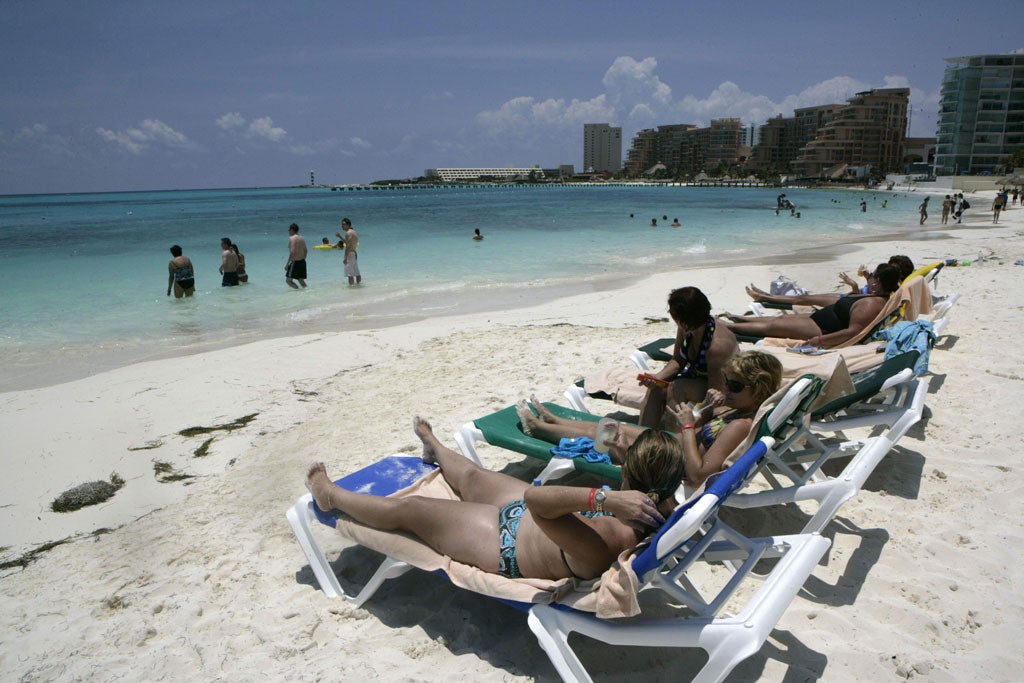Simon Calder: Fancy a trip to Mexico? The US has the final say
The man who pays his way

As the Easter holidays approach, plenty of people besides you (and possibly your family) take an interest in your travel plans – from the milkman to your insurance company, which will want to know if you intend to try anything tricky or stray into trouble zones. But starting this month, another organisation has British travellers in its sights: the US Department of Homeland Security.
Following the terrible events of 9/11, and several subsequent terrorist attempts to murder people using civil aircraft, the Americans take an understandably close interest in the identities and motives of everyone flying to the US. Before any trip to the 50 states, you must reveal your plans to the American authorities. They then make "pre-flight comparisons" against watch lists belonging to a multiplicity of agencies, including the FBI – and even the Center for Disease Control's "Do Not Board" list. If your details match someone, you are off the plane.
Up to now, there has been a simple way to eliminate the danger of being denied boarding: don't buy a ticket to America. But as The Independent revealed this week, you may now fly to Mexico, Cuba or eastern Canada only if the US authorities agree.
The Department of Homeland Security requires airlines to send passengers' full names and dates of birth at least 72 hours ahead of departure. And that plane may leave the gate only when the US says so. A spokeswoman insists: "The US government has the authority to refuse entry into its territory any flight it deems to present a threat to its security."
Consequently, British passengers flying to popular destinations such as Havana and Cancún, as well as to the major Canadian cities of Toronto, Montreal, Ottawa and Halifax, face the prospect of being barred from a flight by officials of a country which they do not want to visit.
While a Heathrow to Mexico City flight spends several hours traversing US airspace, other journeys covered by the new rules do not. The Canadian carrier Air Transat warns passengers who book to fly from Glasgow to Toronto and Gatwick to Halifax – routes that do not normally touch US airspace – that failing to supply personal details "could result in passengers being refused to fly".
Compared with the increasingly onerous demands made upon international travellers, the data demanded is not especially intrusive. But the principle is preposterous: that the US has the final say about who can fly the Atlantic.
Simon Hughes, the deputy leader of the Liberal Democrats, says the UK Government should "engage in urgent and constructive discussions with the US authorities to make sure those travelling between Britain and Canada, Mexico and Cuba can have the same rights as people on any other journeys around the world".
The logical conclusion of the American argument is that any plane from anywhere in the world that is technically capable of reaching the US has to be regarded as suspect. For example, our old friend the easyJet flight from Manchester to Sharm El Sheikh has enough fuel to cover the 2,551 miles to Egypt's Red Sea coast, and at least 10 per cent more in reserve. This puts New England within reach of Manchester– so everyone on board should surely be signed off by Homeland Security too.
Homeland Security rules the international airways
Giving country A the right to decide who can fly between countries B and C is the thin edge of a dangerous wedge. You may wonder where you were when a treaty was agreed that assigns to the Americans the right to meddle with your travel plans. Surely you would have noticed.
In fact, no treaty has been negotiated because the US authorities believe none is necessary. A spokeswoman says the new rules are "consistent with US international treaty obligations". Any airline, such as British Airways, Air Canada and Virgin Atlantic, that wants to fly to America must agree to abide by Homeland Security regulations. If these rules are extended to cover flights over, or close to, US territory, the airlines have to comply – or risk being banned by the world's only aviation superpower.
travel@independent.co.uk
Subscribe to Independent Premium to bookmark this article
Want to bookmark your favourite articles and stories to read or reference later? Start your Independent Premium subscription today.

Join our commenting forum
Join thought-provoking conversations, follow other Independent readers and see their replies